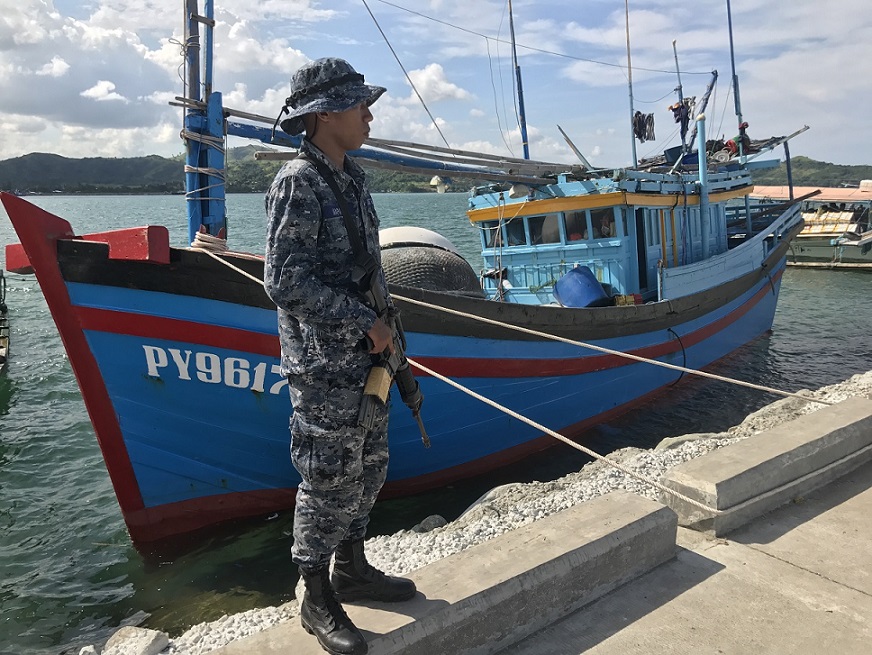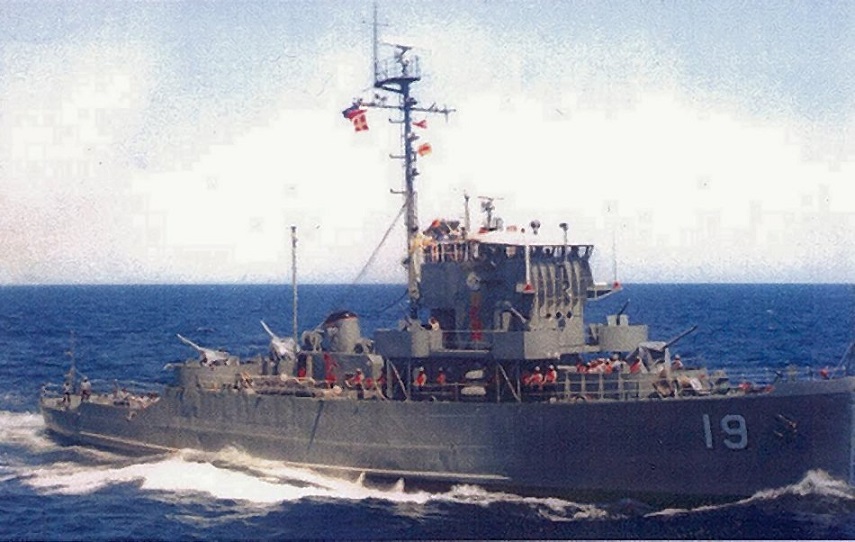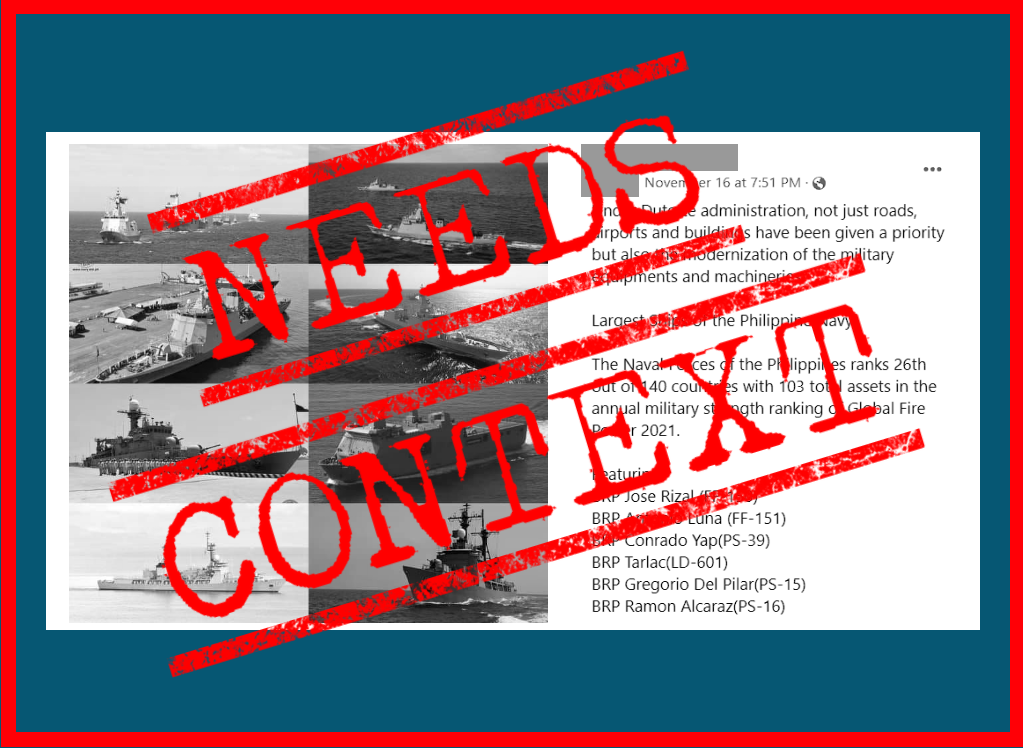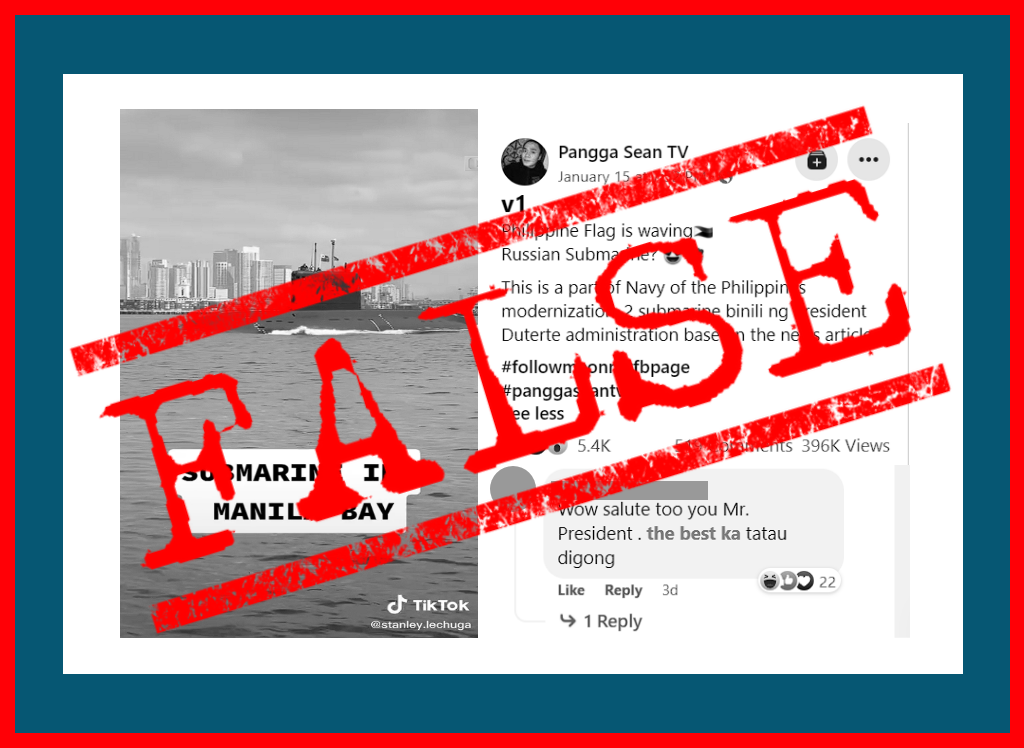The Philippine Navy is at fault in the death of two fishermen during a sea chase in the waters of Pangasinan on Sept. 22, a source privy to the investigation of the incident said.
Investigators, the source said, cited a 1999 ruling of the International Tribunal on the Law of the Sea (ITLOS) that states: “In the conduct of arrest, use of excessive and unreasonable force in stopping and arresting a vessel such as firing with live ammunition using shots from large–caliber automatic guns must be avoided, and where force is unavoidable, it must not go beyond what is reasonable and necessary in the circumstances”.
The Philippine Coast Guard, which is investigating the incident, took note that the incident happened 39 nautical miles off Bolinao in Pangasinan, which was within the exclusive economic zone (EEZ) of the Philippines, the source further said.
“Under the Law of the Sea Convention, in the EEZ, the Philippines does not have Sovereignty but only Sovereign Rights for the purpose of exploring and exploiting, conserving and managing the natural resources found therein. This means that the Philippines cannot enforce its laws including the Revised Penal Code except only its laws and regulations relating to fisheries and marine environmental protection,” explained the source.

Vietnamese fishing boat involved in the Sept. 22 incident with the Philippine Navy.
The Philippine Navy announced Sept. 26 that the officers involved in the incident were relieved as the Department of Foreign Affairs assured Vietnam a fair and thorough investigation into the deaths.
“We would like to offer our sympathies over the unfortunate loss of life and give you our assurance that we will conduct a fair and thorough investigation into this matter,” Foreign Affairs Secretary Alan Peter Cayetano said.
The VERA Files source said based on the interview with the Vietnamese fishing boat captain, at about 11 in the evening on Sept. 22, while the Vietnamese fishing boat was anchored 39 nautical miles off Bolinao, an unidentified vessel sailed towards their direction. Immediately, they cut their anchor net and scampered away towards the direction of Vietnam because they were afraid the approaching vessel was a pirates’ ship.
The Vietnamese heard 10 gun shots fired towards both sides of their fishing boat. It was only after a 30 minute chase, when the pursuing vessel was approximately three to five meters away that it was identified as the- BRP Miguel Malvar (PS 19).
“At that very near distance, the PN vessel continued to fire at fishing boat killing two of the six crew who were hiding inside the cargo hold area located at the forward portion of the boat. The Navy officers arrested the remaining fishermen for poaching and brought them to Sual in Pangasinan,” the source said.
Maritime expert Jay Batongbacal, director of the University of the Philippines Institute of Maritime Affairs and Law of the Sea, said it is too early to decide whether the Philippine Navy may be sanctioned.
“Whether or not the use of deadly force is justified is a separate question,” he told VERA Files in an interview. “That is supposed to be determined in the investigation,” he added, noting that whether disciplinary actions will be taken against those who fired is separate from poaching.
However, lawyer Romel Bagares, executive director of the Center for International Law, pointed out that the Philippine crew, all state agents, are covered by state immunity.
A case, he said, “may only be proceeded against in a criminal procedure by a Philippine court, unless the Philippines has expressly waived such immunity in favor of a Vietnamese court.”
Bagares added: “The Philippines has the sole and exclusive jurisdiction to do so under established international law.”
“If the Philippines imposes an unreasonable bond for the prompt release of ship and crew and refuses to pay reparations for the two deaths, Vietnam may file the appropriate action before the International Tribunal on the Law of the Sea,” Bagares said.
What the navy did as part of its law enforcement was “justified,” as it happened within the 200-nautical mile EEZof the Philippines, Batongbacal maintained.

BRP Miguel Malvar (PS- 19)
Under the United Nations Convention on the Law of the Sea (UNCLOS), the Philippines has sovereign rights on its 200 nautical mile EEZ, where the country has exclusive rights to “explore and exploit natural resources” found in the area.
“Any foreign vessel that is found fishing in the (EEZ) is considered to be committing the crime of poaching,” Batongbacal said.
Although sovereign rights are “less than sovereignty,” as Senior Associate Justice Antonio Carpio had earlier said, they retain a country’s exclusive and superior rights above other states.
Sovereignty bestows full rights on a country within the 12-nautical mile stretch of its territorial waters measured from the baseline. Beyond it is the EEZ governed by the Philippines’ sovereign rights, which give power for a country to take measures like arresting vessels and their crews under Article 73 of UNCLOS.
But this distinction is beside the point, Batongbacal said. As far as the law is concerned, the Vietnamese fishermen violated the Philippine Fisheries Code of 1998, he added.
Under Section 87 of the law, it is unlawful for foreign entities to operate their fishing vessels in Philippine waters. Any entry shall already constitute a prima facie evidence.
“The law already presumes them to be engaged in poaching. It’s the Vietnamese who must show proof that they were not fishing,” Batongbacal said.
The law penalizes offenders with a fine not exceeding $100,000, or P5,093,400, and confiscation of the catch, fishing paraphernalia and vessel.
The VERA Files source, however, said it would be difficult to establish and prove that the Vietnamese fishermen committed poaching because there are circumstances that must first be met before a foreign vessel’s activity can be considered poaching.
Vietnam is an ally of the Philippines, notably when it supported its position against China before the Arbitral Tribunal, which later ruled China’s claim to resources in the South China Sea had no legal basis and its nine-dash line invalid.
In 2015, the Philippines signed a strategic partnership agreement with Vietnam that reaffirmed “their commitment to resolve territorial and jurisdictional disputes by peaceful means.”
Magdalo Rep. Gary Alejano, former maritime officer, said in a Sept. 26 press release the incident happened because of the absence of a clear direction in handling the maritime situation.
It “gives us a picture of the dangers and tension in the area amid territorial disputes and competition over resources,” he said.
He called on the administration to come up with a strategy that would provide policies and guide actions for all stakeholders, especially the fishermen.


